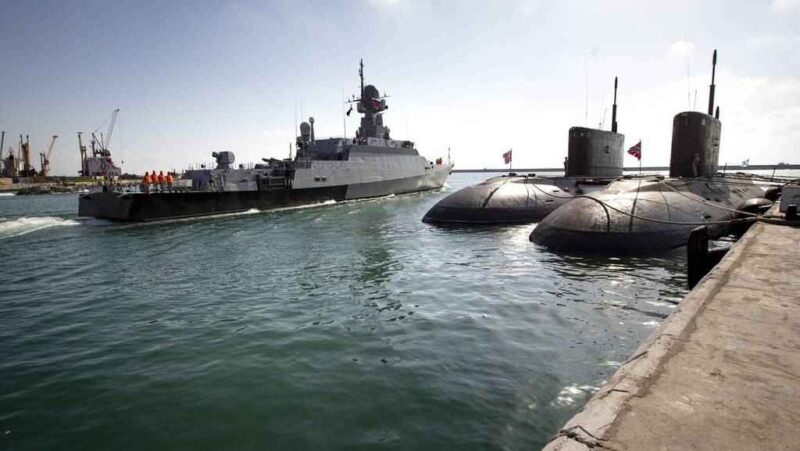Considering the Russian inability to showcase but its weakness in invading the Ukraine, should the U.S. plan for a time to chase Russia out of the Middle East? Should our military, in concert with our allies in the region, find it suitable for our own interests to remove Russian influence from places like Syria? It is highly unlikely that Vladimir Putin can engage his military machine on two simultaneous theaters of wars, which begs the question asked earlier. Is it in our best interests to weaken Russia further by expelling the Russian Navy from its new Middle East HQ in the warm waters of Tartous, Syria?
Some may argue this is not in our best interests because Russia is an arch-enemy of Sunni Islamism. The likes of which the Taliban, ISIS, and al-Qaeda adhere to. Why would a country like Israel, for example, which sees eye-to-eye with Putin on containing the threat of extreme Islamism agree to losing that essential partnership? Even at the expense of Implicit Russian support for the Assad regime of terror?
This may explain why the subject of chasing Russia out of the Middle East has never been on the U.S. media radar screens.
The “enemy of my enemy is my friend” no longer applies in today’s Syria.
A BALANCING ACT
Russian support for the Assad regime is a major concern, not only for NATO, but also the State of Israel. On one hand, Israel seeks to nullify any threats on its borders, but on the other hand, threats come in many flavors. Which is more threatening? A state sponsor of terror it can possibly influence its behavior if it engages diplomatically with its Russian mentor, or loose Islamist cannons, which only engage in violence? The answer, for Israel, has been engaging with Russia.
But that was yesterday when ISIS had legs to stand on. The ISIS the world witnessed during the Syrian civil war has been mostly decimated thanks to U.S. bombings. Would expelling Russia make sense today? The “enemy of my enemy is my friend” no longer applies in today’s Syria. ISIS and its offshoots are gone, but Russia remains. Should the west not find a way to weaken the Assad regime further in order to build a broader security umbrella to the north of Israel by seeking to kick Russia out of the Middle East?
Inevitably, expelling Russia from the Middle East makes perfect sense if we are assured that ISIS has been contained.
ADD IRAN TO THE EQUATION
One cannot ask that question without also taking the extremist Islamist Iranian Mullahs into consideration. Iranian presence in Syria and Lebanon is a long-term threat to U.S. interests in the Middle East, and Russia, indirectly, is supporting that structure by supporting the Syrian regime. Even though Putin turns a blind eye to Israeli aggressive defensive measures against Iranian assets threatening its existence.
Would Russian forced exit out of Syria serve our interests if one takes into consideration the full parameters of this complex equation? Some parts of which remain intangible. As in Russian political influence, weapon systems peddling, and invisible threats to oil reserves in the region.
If the answer is yes, which I believe should be, then how do we go about expelling Russia? False flag operation means U.S. possible direct involvement through NATO. This means Turkey’s willing participation. But Turkey’s leadership may not be willing to burn its bridges with Russia regardless of the existing historical enmity between the Ottomans and The Orthodox Church. As complex as Israel relations are with Russia, so are the ones we find between Turkey and Russia.
Even if the answer is to the positive, “how” becomes the difficult part. Not Israel, nor the United States are willing to commit troops to such an endeavor. Is it time to chase Russia out of the Middle East? Yes. But how and who are two essential and unanswered questions.
What remains really is wishful thinking. What remains is “let’s be patient and wait for the opportunity”. Inevitably, expelling Russia from the Middle East makes perfect sense if we are assured that ISIS has been contained.
Assad, standing on his own, is the bedrock upon which to build a more secure Syria.





